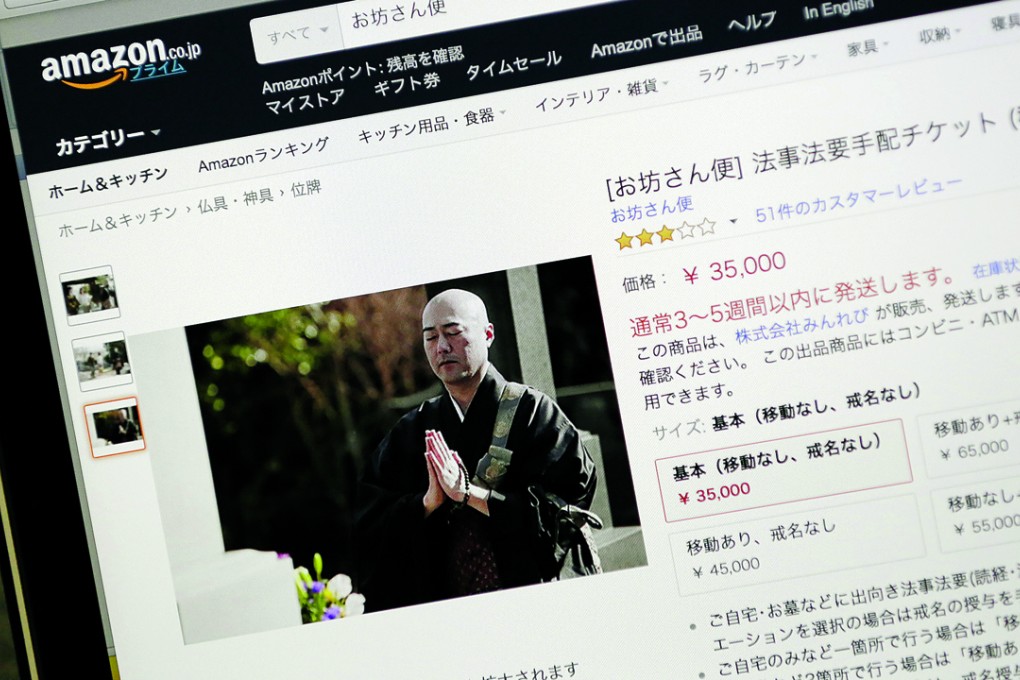Buddhist monks on demand: Amazon Japan allows customers to order rituals online at far cheaper rates than temples expect to be paid
Monk delivery services have emerged as many of Japan’s 75,000 temples are losing offerings and business within their communities, which traditionally have been the main source of financial support.

In Japan, where communal ties to local Buddhist temples are fading, families have in recent years been able to go online to find a Buddhist monk to perform funerals and other rituals.
But when Amazon Japan allowed a provider to offer “Obo-san bin,” or “Mr Monk Delivery,” on its website, it shone a spotlight on the emerging trend and prompted a major Buddhist organisation to criticise the marketer of commercialising religion.
A basic plan for monk, transportation and a donation offered by the Tokyo-based provider, Minrevi, one of dozens of emerging budget companies, costs 35,000 yen (HK$2,266). Three other options are available for more money. The monks would typically go to a home, funeral hall or a grave to perform the ceremony.
“Such a thing is allowed in no other country in the world. In this regard, we must say we are disappointed by an attitude towards religion by Amazon,” Akisato Saito, director of the Japan Buddhist Association, said.
Such a thing is allowed in no other country in the world... we are disappointed by an attitude towards religion by Amazon
Many Japanese, however, welcome the service as a consumer-friendly approach to Buddhist rituals, whose cost is often perceived as murky and overpriced. Buddhist-style memorial services offered by temples comparable to the “monk delivery” could cost as much as 100,000 yen. Funerals are even more expensive and can cost well over 1 million yen.